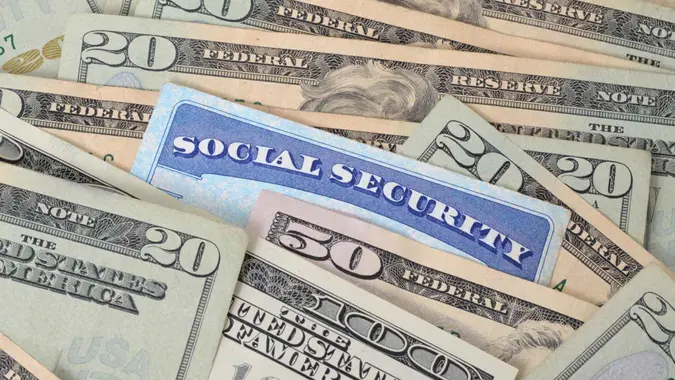3 Key Signs You Might Not Qualify for the Social Security Benefits You Expect

Commitment to Our Readers
GOBankingRates' editorial team is committed to bringing you unbiased reviews and information. We use data-driven methodologies to evaluate financial products and services - our reviews and ratings are not influenced by advertisers. You can read more about our editorial guidelines and our products and services review methodology.

20 Years
Helping You Live Richer

Reviewed
by Experts

Trusted by
Millions of Readers
Social Security serves as a lifeline for tens of millions of seniors. Today, that number is growing.
As of December 2024, the Social Security Administration (SSA) reported that about 65.5 million Americans receive a Social Security payment each month. Of those people, about 53.6 million are age 65 or older — that’s more than three-quarters of all Social Security recipients in the U.S. Additionally, the SSA reported that the estimated average monthly Social Security benefit as of January 2025 is about $1,976.
There’s no doubt that retirees rely heavily on the Social Security system for financial stability in their golden years. However, there are several indicators that you might not qualify for quite as large a Social Security payment as you may have hoped for.
Here are three signs you might not qualify for the Social Security benefits you expect.
You Claim Benefits Too Early
According to the SSA, for those born in 1960 or later, the current full retirement age (FRA) is 67 years old. You can claim your benefits as early as age 62; however, you’ll receive only 70% of your calculated monthly benefit amount.
Every month after age 62, if you choose to delay collecting Social Security, your monthly benefit will increase until you reach the FRA. By that point, you’ll be eligible for 100% of your monthly benefit.
So if you choose to collect your benefit earlier in retirement, you’ll most likely be permanently locked into a lower payment. The SSA does allow some to withdraw their claim and reapply, but certain conditions have to be met.
You Don’t Have Enough Work Credits
The SSA explained that at least 40 credits (equivalent to 10 years of work) are needed for anyone born in 1929 or later to qualify for retirement benefits.
If you earned fewer than 40 credits by the time you’re ready to retire, you may have to continue working into retirement age to earn the minimum required credits so you can claim your retirement benefits.
You Continue To Work While Collecting Social Security
According to the SSA, it’s possible to work while simultaneously collecting Social Security benefits. However, if you are not yet at the FRA and earn more than $23,400 (which is the 2025 yearly earnings limit), the benefit payment gets deducted by $1 for every $2 earned above the annual limit.
It’s important to plan ahead to avoid the possibility of reducing your benefits until the FRA.
 Written by
Written by  Edited by
Edited by 
























